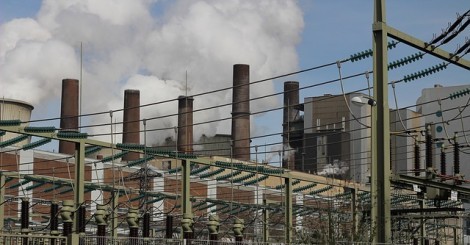
Saprotrophs. Picture-winged flies. Dung beetles. These are the “another man” who find the meat in our poison. The Earth is basically a closed system with respect to chemical elements. The ecosystem needs every organism’s … output to be someone else’s input, thus closing the loop and keeping those elements cycling. Otherwise one or more critical elements would wind up stuck in an unused form no one wants, and we’d all eventually run out of it. But of course if some element did accumulate in a particular form, there’d be an opportunity–a feast–for any organism who can find a way to make a meal of it.
Actually, humans have done almost exactly that with the carbon accumulated in fossil fuels. We not literally eating them because we have found uses for natural resources beyond biology. Still, we found ourselves at a banquet so lavish, we didn’t have to worry so much about connecting up our outputs to any input somewhere in the chain. There was always plenty of carbon coming in. Only now we are abundant, and some of our carbons sources aren’t looking so lavish. But wait! There’s still an opportunity somewhere because some of our outputs are accumulating.
And so we have coal plants turning their excess carbon dioxide into baking soda. It’s the latest in a whole slew of efforts to take all that CO2 we’re making and make it useful. For example, I also recently read about a way to harness carbon dioxide for batteries. The baking soda approach is particularly promising because it is economically viable; the plants are making more money capturing their emissions than they would ignoring them.
Of course, this principle applies to a variety of systems at all sorts of scales. Universities graduating more PhDs than they can hire as faculty? Doctors accumulate until technology companies, government agencies, arts non-profits or other organizations can find a place for them. Automation producing more leisure time for certain populations? Facebook will gladly gobble all that free time and turn it into data and attention for advertisements. And so on. Taking advantages of these new niches isn’t automatically guaranteed, we have to actively look for opportunities and find ways to connect them back up to productive cycles. But we need to make that effort in order to make the most of the resources with which we have been entrusted.
Andy has worn many hats in his life. He knows this is a dreadfully clichéd notion, but since it is also literally true he uses it anyway. Among his current metaphorical hats: husband of one wife, father of two teenagers, reader of science fiction and science fact, enthusiast of contemporary symphonic music, and chief science officer. Previous metaphorical hats include: comp bio postdoc, molecular biology grad student, InterVarsity chapter president (that one came with a literal hat), music store clerk, house painter, and mosquito trapper. Among his more unique literal hats: British bobby, captain’s hats (of varying levels of authenticity) of several specific vessels, a deerstalker from 221B Baker St, and a railroad engineer’s cap. His monthly Science in Review is drawn from his weekly Science Corner posts — Wednesdays, 8am (Eastern) on the Emerging Scholars Network Blog. His book Faith across the Multiverse is available from Hendrickson.

Leave a Reply